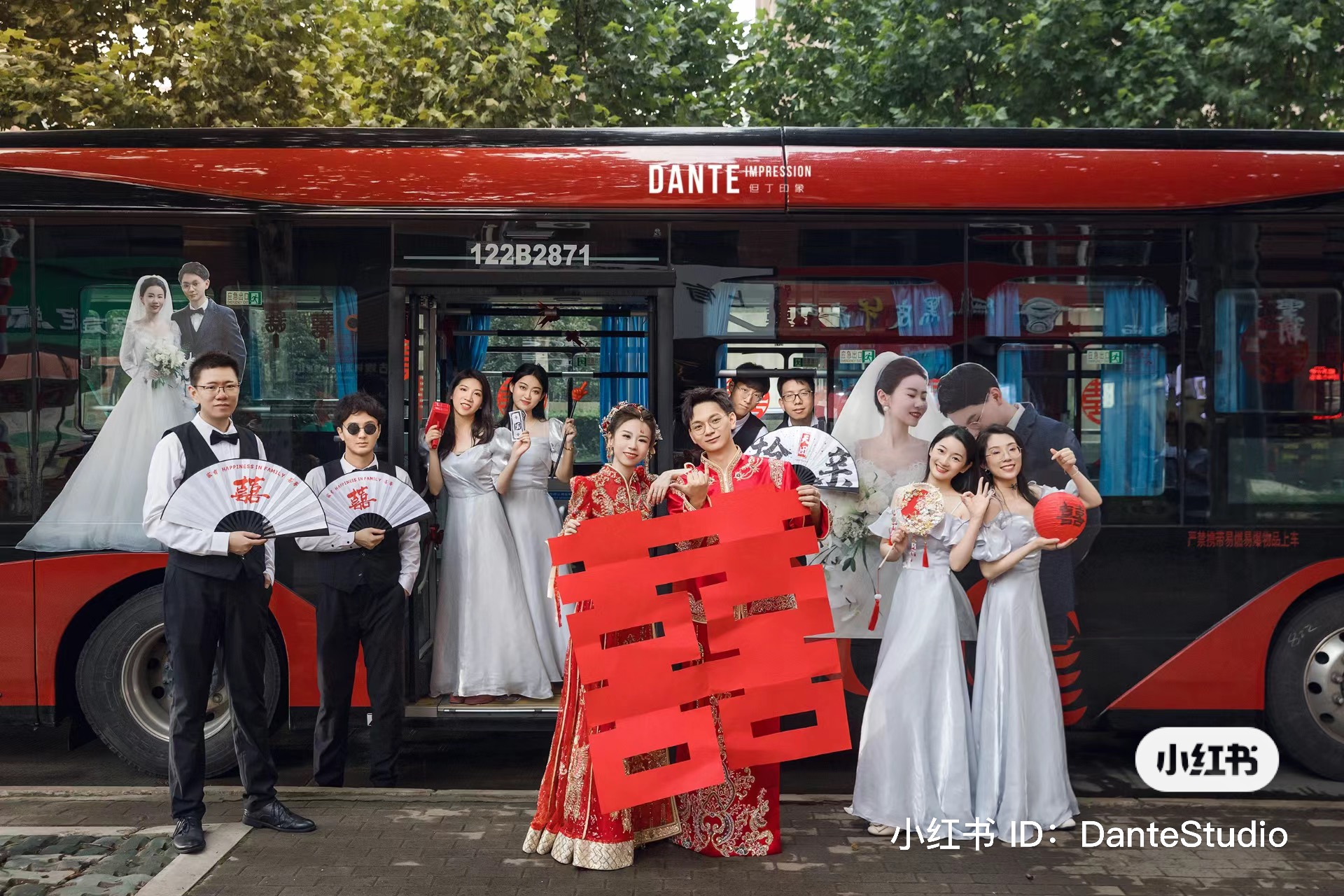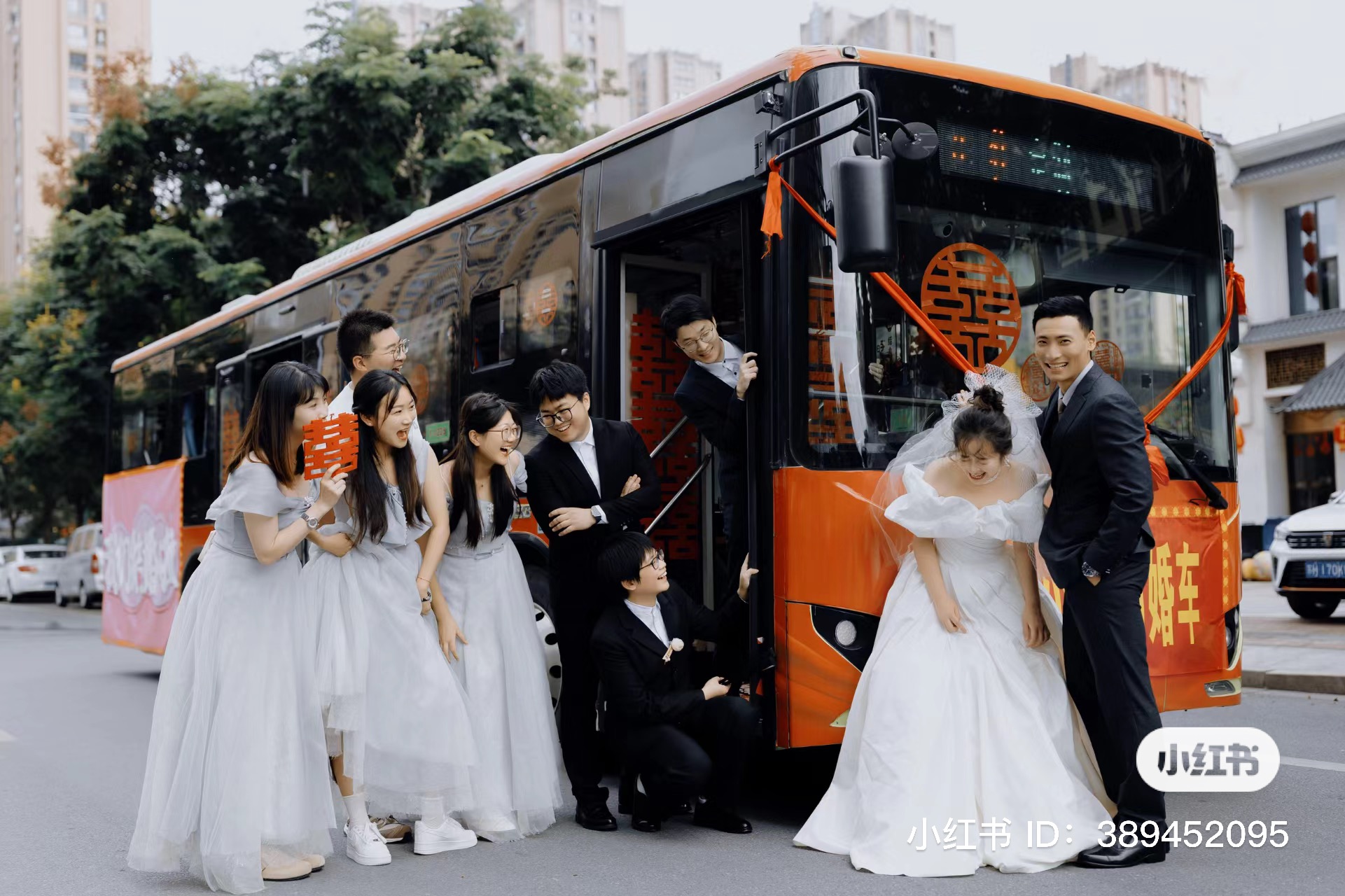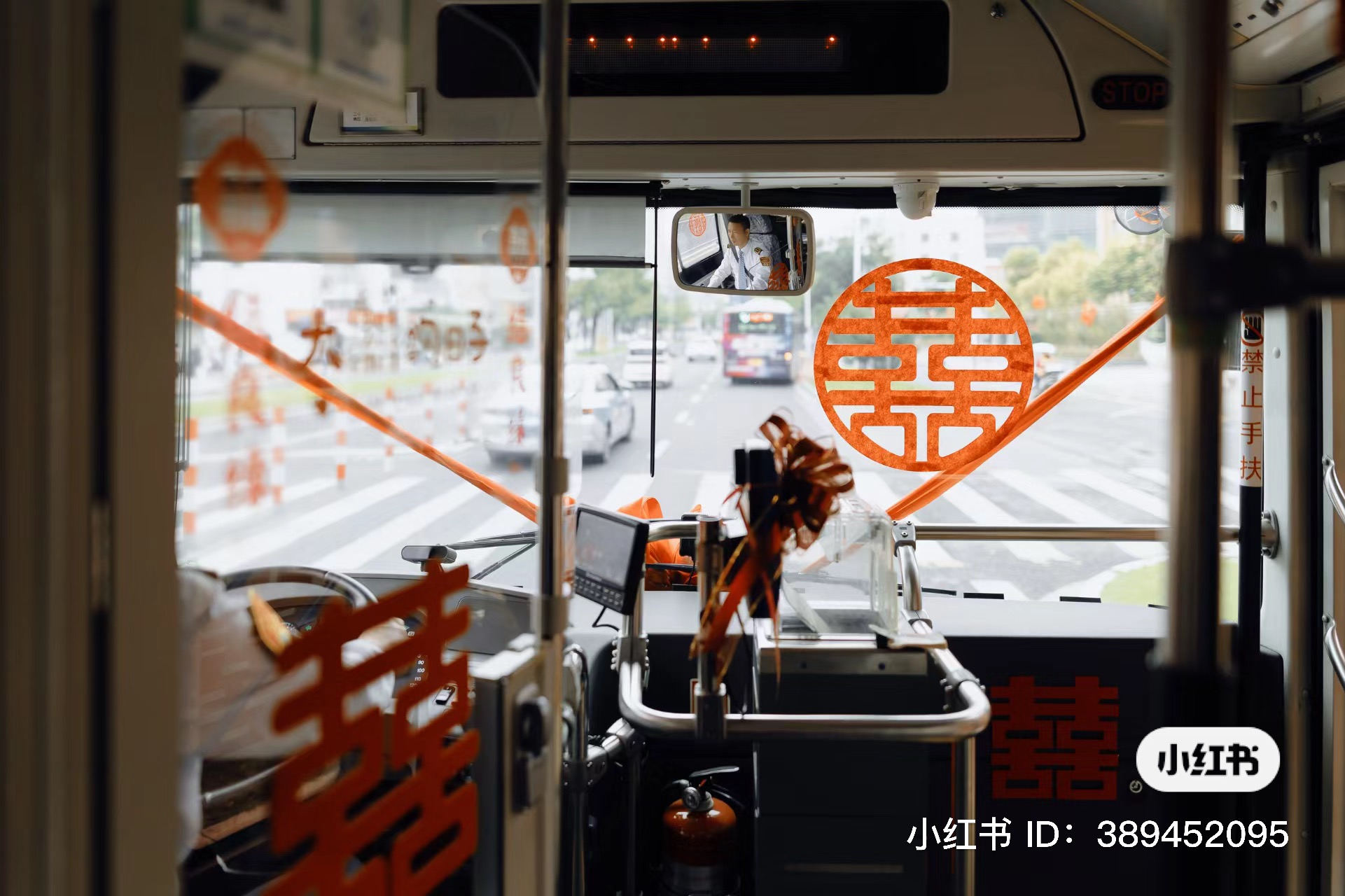Move over, limos: Chinese newlyweds use public buses as wedding vehicles
Public bus companies in multiple Chinese cities are now allowing customers to rent their vehicles as wedding cars in order to increase revenue.

Lavish banquets, expensive gowns, and a parade of high-end cars to bring guests to the venue. These have long been staples of a Chinese wedding, considered a once-in-a-lifetime opportunity for newlyweds to splurge on an ultra-luxurious experience.
But in a newly emerging trend in multiple Chinese cities, couples are going frugal on wedding day transportation…and taking buses.
In the past few months, a slew of public benefit corporations responsible for bus services in China have rented their vehicles for wedding celebrations. By making their resources available for personal use, the companies are hoping to diversify their revenue streams as subsidies from cash-strapped local governments dwindle.
Operators in Shandong’s Yantai, Henan’s Zhengzhou, and Hebei’s Xiangyang are among the ones that soft-launched their own wedding car rental services recently, with many of them still testing out the new businesses in pilot programs. The phenomenon received widespread media attention during the past Golden Week holiday, an annual weeklong break celebrating the founding of the People’s Republic of China that is traditionally one of the most popular times for weddings.
In several wedding photos that have gone viral on the Chinese internet, newlyweds in cities like Nanning and Dalian can be seen posing alongside friends and family members in public buses. The vehicles are dedicated with classic visual motifs associated with a Chinese wedding, such as prints of the Chinese symbol xǐ 囍, which means “double happiness,” red balloons, and flowers.



According to Chinese media, affordability and novelty are the main factors driving Chinese couples toward the new shuttling option. In Yantai, the local transit agency in charge of public buses now offers two rental packages. Priced at 3,000 yuan ($410), the cheaper one includes eight hours of a regular bus with 30 seats, a driver, and decorations. With an additional 1,000 yuan ($137), customers can replace the ordinary bus with a double-decker. Both arrangements cost less than the most common option for wedding transportation in Yantai right now, which costs 8,800 yuan ($1,205) for a fleet of six cars — one Bentley and five Benz.
Known as yíngqīn 迎亲, it is a traditional Chinese wedding custom that the groom sends a group of cars to the bride’s home to collect her and the bridesmaids and relatives to the site of the ceremony. For many Chinese couples, having a large fleet of luxury cars for their big day is usually a display of wealth.
When talking to local media, representatives for public bus companies were adamant that the rental businesses won’t encroach on regular services. Many revealed that only a small number of their vehicles are on offer as wedding cars, and that if demand increases drastically on peak wedding dates, the agencies will still prioritize public transportation.
Although the rental businesses are far from fully developed, the move reflects a sense of urgency among Chinese public bus companies to generate new sources of revenue. Despite being a vital element of China’s daily transportation system, especially in areas where subway service isn’t prevalent, nearly every public bus agency in China has been losing money for decades as the cost of operation, maintenance, and workforce usually far exceeds what is collected in fares. For many businesses in this sector, China’s prolonged COVID restrictions further exacerbated their financial situations, as ridership decreased significantly during three years of travel curbs.
To keep their services operating and fares low, Chinese public bus companies usually rely on subsidies from local governments. But China’s municipal debt soared over 59 trillion yuan ($8.25 trillion) last year due to overspending on regional developments and a substantial drop in land sales amid a nationwide real estate slump.
Many bus operators have publicly struggled. In September 2022, after delaying salary payments to its employees for four months, Lanzhou Transportation Group, which runs the city’s bus system, encouraged its staff to take out loans from banks to cover living expenses and offered to be their guarantor. A year later, at a meeting about fare adjustments attended by customers and government officials, the company revealed that for every trip its passengers take, it loses 5.38 yuan ($0.74).
Meanwhile, its counterpart in Tianjin is also in trouble. In recent months, a barrage of complaints have surfaced online about its delay of salary payments. One of its employees told Caixin that the company have missed salary payments to bus drivers and other staffers since June and suspended social welfare payments in August.


